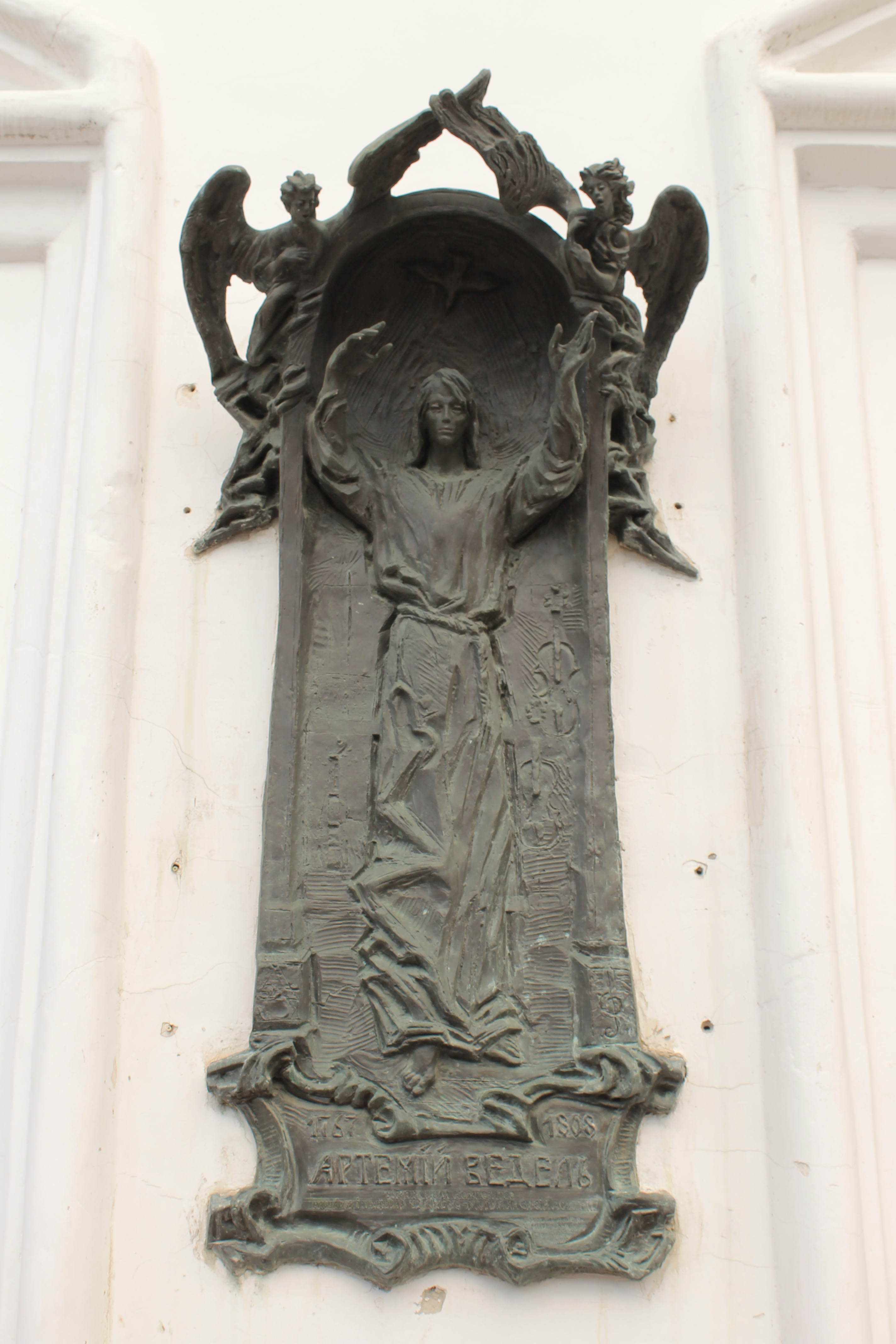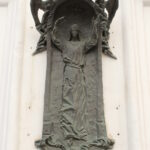Vedel Artem
Vedel (Vedelsky) Artem Lukyanovich (1767, Kyiv – July 14, 1808, Kyiv) – composer, conductor, singer, violinist, and a student of Kyiv-Mohyla Academy. He was born in the family of Kyiv townspeople the Vedelskys in Podil.
In 1787 he graduated in philosophy from Kyiv-Mohyla Academy. Supposedly, in his senior years, the young man began to compose his own pieces and conduct the student choir and orchestra.
In 1788-1792 he was in Moscow, where he was sent because of his musical talents, and there he conducted local chapels, including the Governor-General Chapel, and was improving his musical skills. After returning to Kyiv in late 1792 and until 1796, Vedel directed the choir of Kyiv-Mohyla Academy, a music chapel at the Headquarters of the Infantry Corps, and a choir of soldiers’ children.
In 1796-1798 the musician worked in Kharkiv, where with the support of the Governor-General he organized a choir, orchestra, taught singing and music, and in particular, conducted a vocal class at the State College of Kharkiv College for Singers, who later worked in the chapels of St. Petersburg, Moscow. and St. Petersburg Metropolitan Choirs.
In 1799 he became a novice to the Kyiv-Pechersk Lavra, where he sang in the choir. According to one version, he was accused of prophecy about the murder of King Paul I, was declared insane and kept for 9 years in the Kiev insanity. He was buried in Shchekavichy Cemetery, which was destroyed in 1935.
At Kyiv-Mohyla Academy Vedel not only received a thorough education, completing a philosophy class, but also conducted a student choir and orchestra, performed as a soloist, vocalist and violinist, and began to compose music. It was studying in Kyiv that showed the talent of the young man and gave the necessary basic training and the impetus for the development of mastery, enabled the appearance of such a distinctive musical phenomenon as Vedel in European culture of the 18th century.
Despite the widespread popularity of Vedel’s musical works in the life of the composer and after his death, they were first published in the late nineteenth century. At present, there are 80 known works of the musician, including more than 30 choral concerts, 6 trios, 2 liturgies, and one secular chant. Most of A. Vedel’s choral concerts are written in the words of the psalms and continue the tradition of partisan singing – a church polyphonic choral singing, which is characteristic primarily of Ukrainian lands.
In Ukrainian territory, Vedel was one of the creators of a choral concert, the main genre of choral music of the classicist era, in the eighteenth century. His choral concerts organically combined the traditions of partisan singing, Western European classical forms, and the motifs of Ukrainian dumas (a type of Ukrainian folk songs), and laments.

